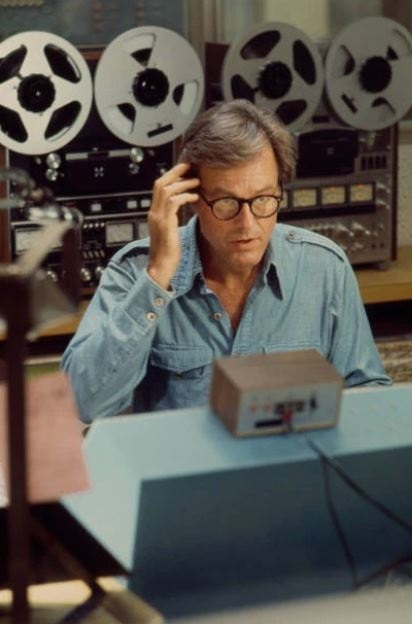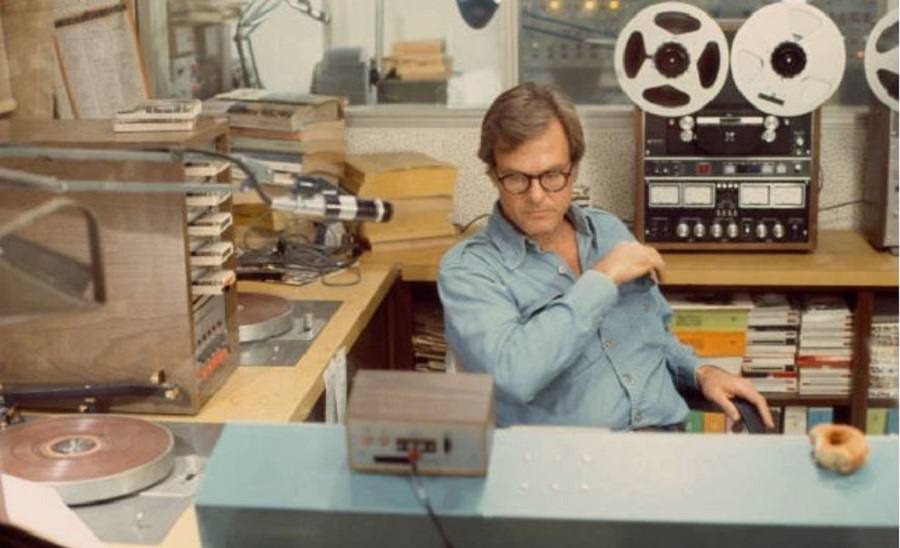By Erin Free
In this regular column, we drag forgotten made-for-TV movies out of the vault and into the light. This week: the 1975 drama A Cry For Help, starring Robert Culp and Elayne Heilveil, and directed by Daryl Duke.
The late Robert Culp is one of the truly underrated American actors of the cinema and television, a quietly charismatic master of the quip and wisecrack who commanded the screen with seemingly no apparent effort. His laidback vibe and wide ranging choice of roles belied his gifts as an actor, which were on full display in crackling movie hits like 1969’s Bob & Carol & Ted & Alice, 1971’s Hannie Caulder, 1972’s Hickey & Boggs (his sole big screen directorial credit) and more. Robert Culp was also a prolific TV player, taking on guest spots on pretty much every major show in the 1970s and 1980s, as well as strong, career-defining leads in the 1960s comic espionage series I Spy (opposite, sorry, Bill Cosby) and the 1980s hit The Greatest American Hero, which put a wonderful spin on the superhero genre. Adept at both serious drama and snappy comedy, Robert Culp is worth watching in just about anything.
And he did a lot, especially in the telemovie field, with the essential likes of 1971’s See The Man Run, 1973’s A Cold Night’s Death, 1977’s Spectre, 1982’s Thou Shalt Not Kill, 1984’s Calendar Girl Murders, 1986’s The Gladiator and many, many more. Robert Culp got pretty much the perfect role, however, with 1975’s A Cry For Help, which allows the actor to up the dramatic factor while also peeling off one-liners and cracking wise with wild abandon. Culp gets rock-solid material to work with here too, courtesy of screenwriter Peter S. Fischer and executive producers Richard Levinson and William Link (the trio who would eventually go on to create the hugely popular TV series Murder, She Wrote), who meld dark humour with a driving social conscience to craft something truly compelling. Stitching it all together is Canadian director and Unsung Auteur Daryl Duke, who shows the same kind of confidence that he did on exceptional features like 1973’s Payday and 1978’s The Silent Partner.

In A Cry For Help, Robert Culp is Harry Freeman, an acerbic talk-radio host on a regional seaside station who runs a fine line in jaded world-weariness, embittered bravado, and barbed insults, a spiky precursor to Eric Bogosian in Oliver Stone’s Talk Radio. Harry invites listeners to call in, but if they don’t offer anything of interest or value, he cuts them down without a second’s hesitation, wielding words like weapons. Even a young girl calling to announce her potential suicide is just more cannon fodder for Harry, who blithely and callously suggests that she goes through with it, convinced that she’s little more than an attention seeker. Through a series of strangely dreamy and dislocating scenes, however, the audience knows that the young girl is called Ingrid (played with sad, quiet desperation by Elayne Heilveil, who had previously appeared in Duke’s Payday), and that she’s not joking about ending her life…Ingrid means it.
Harry’s listeners are less flippant than their radio host, however, and pretty soon his phone is blowing up with callers demanding that he help the potentially suicidal young woman. Seizing an opportunity for a blast in rating numbers, and also actually a little concerned about the young woman’s safety, Harry encourages listeners to call in with any info they might have on the whereabouts of the girl. With an unhappy boss (prolific character actor Ken Swofford) breathing down his neck, Harry takes in tiny pieces of information from various callers who think they know or have encountered Ingrid, and slowly, surely, the radio host begins to paint a picture of who the young woman is and where she is. Through his shift, Harry keeps it manic and fast-moving so the audience won’t leave him, driving them for more info at every turn and creating a hotly simmering media cause celebre.

Curiously prescient, A Cry For Help deals in a lot of issues – youth suicide, societal loneliness, the media’s snide commodification of tragedy – that are just as topical today as they were in the mid-seventies. Despite the film’s urgent, edgy tone and slightly tabloid-style storytelling, there’s a genuine sympathy for the young woman at its centre, and A Cry For Help almost takes on a feel-good quality as Harry Freeman clearly and obviously begins to care about the fate of his ratings winner suicide case. Harry keeps going with the cynical quips, but it’s obvious that there’s a beating heart buried beneath that heavy metal armour of pithy put-downs and brutal misanthropy.
Though there are some interesting and familiar players in support (Michael Lerner as a harried witness; Julius Harris as a stern but ultimately warm diner owner; Bruce Boxleitner as a cocky young stud who puts the hard word on Ingrid when he picks her up on the highway), Robert Culp is very much the centre of the universe here, and he brings his requisite earthy charm to the film, making Harry Freeman a truly fascinating figure. A high-quality telemovie of the first order, A Cry For Help showcases the perennially underrated Robert Culp at his absolute best.
Availability: A Cry For Help is easy to find online, but it’s unfortunately in pretty rough shape, both in terms of audio and video.
If you enjoyed this review, check out our other vintage telemovies Trilogy Of Terror, Policewoman Centerfold, Smash-Up On Interstate 5, Something Evil, Savage, A Step Out Of Line, The Boy In The Plastic Bubble, The Dirty Dozen: Next Mission, A Very Brady Christmas, The Gladiator, Elvis, The Rat Pack, Silent Victory: The Kitty O’Neil Story, Terror Among Us, The Hanged Man, Hardcase, Charlie’s Angels: Angels In Vegas, Vanishing Point, To Heal A Nation, Fugitive Among Us, To Kill A Cop, Dallas Cowboys Cheerleaders, Police Story: A Chance To Live, Murder On Flight 502, Moon Of The Wolf, The Secret Night Caller, Cotton Candy, And The Band Played On, Gargoyles, Death Car On The Freeway, Short Walk To Daylight, Trapped, Hotline, Killdozer, The Jericho Mile, Mongo’s Back In Town and Tribes.




